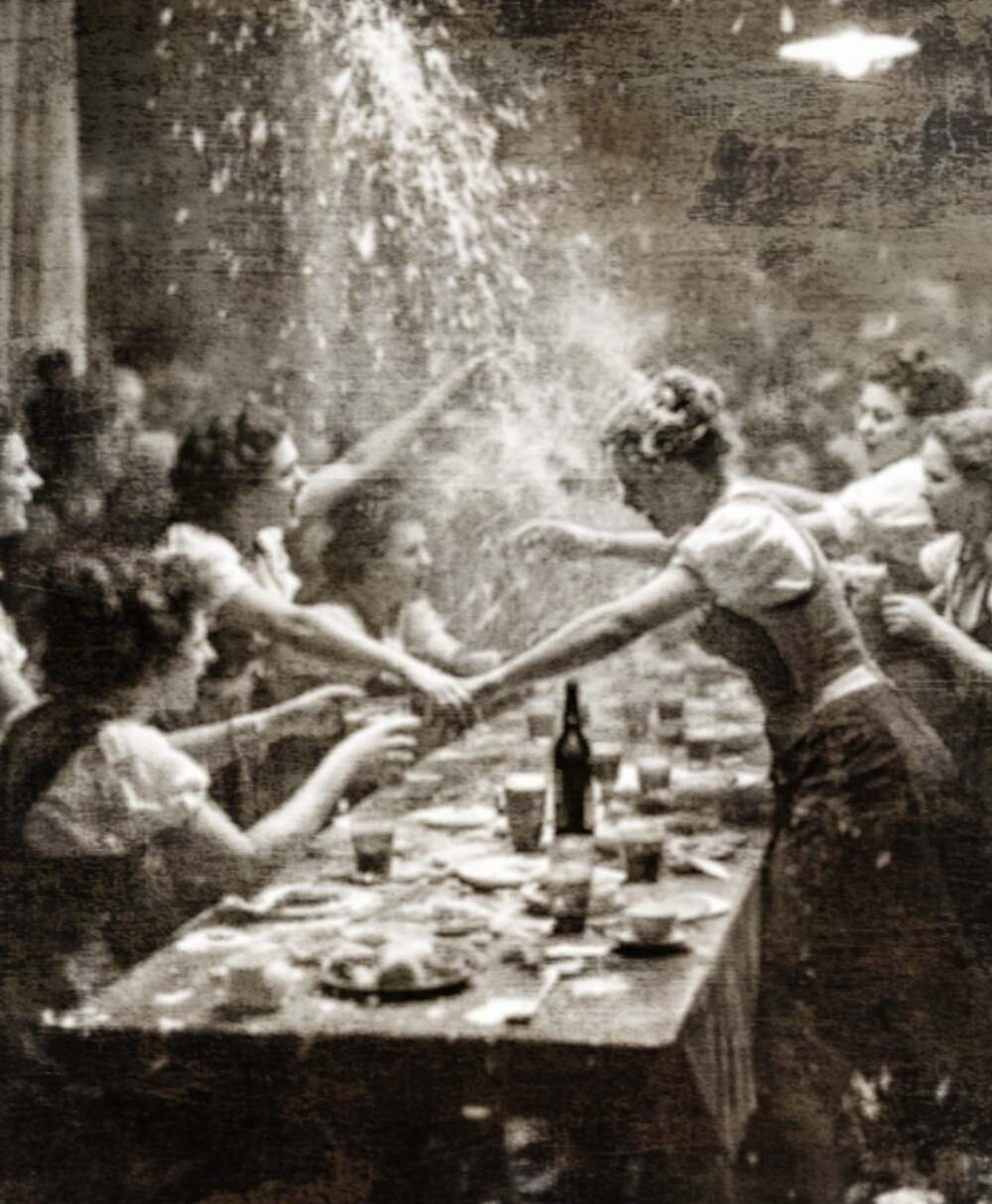
Zeche Hinterfotzing
The appropriation of patriarchal-rural traditions as a realistic dream: the Zeche Hinterfotzing gathers FINTA* people for the first “Menscha*zech” of the Innviertel! In a “Zechen Bootcamp” and two “Ziagan” through Braunau, the sly Menscha* celebrate gstanzl, dance and satirical poetry in a rebellious and humorous way. Originally, Zechen were pure young men’s fraternities, characterized by folk music, drinking and fighting, with each locality having its own songs, dances and rivalries. Women, referred to as “Menscha” in the local Bavarian dialect, were long only tolerated as dancing partners and supporting singing voices rather than appreciated. When female-read persons adopt these customs, an exciting interplay between tradition and rebellion arises – subtly disturbing and at the same time aggressively entertaining. The principle is: everyone has to make sure that it is the best place to be with us!
Secure your place /Bootcamp) now and book your free tickets
https://kupfticket.com/events/zeche-hinterfotzing
CV
Magdalena Hubauer
is a sociologist and social designer. She works at the interface of urban and regional development and community work in both rural and urban areas. As co-founder of the Leischn association, she implements various projects in rural areas.
(She is from the Innviertel region of Austria.) Her artistic projects connect different realities of life, interests and people and aim to make various topics of rural or urban space reflectable and negotiable through shared experiences. As one of three choirmasters of an artistic choir collective, she is interested in the interplay of spatial presence, voice and choreography.
Marlene Hauser
studied acting at the Max Reinhardt Seminar. During and after graduating, she performed at various theaters, including the Volkstheater in Vienna, Hamakom and the Theater in der Josefstadt. Her film credits include “Die Vermieterin” by Sebastian Brauneis, “Corsage” by Marie Kreutzer and “Andrea lässt sich scheiden” by Josef Hader. Together with Flora Besenbäck, she is the founder of HB & Töchter – Gruppe für theatrale Interventionen (a group for theatrical interventions). She is currently appearing in the solo play “Die Party” (The Party) by Ulrike Haidacher at the Schauspielhaus Graz. Marlene Hauser lives in Vienna.
Angelika Faissner
studied communication and film studies in Vienna and has been working as a television and screenwriter, director and format developer since 2004. In addition to moving images and their diverse formal language, she is passionate about music, which she has been involved in since her youth in various musical projects, most recently as a member of the Construction Choir Collective, a vocal collective that moves in the field between choral singing and performance art.
Flora Valentina Besenbäck
studied at Cenart in Mexico City and at the Academy of Fine Arts Vienna. As a scenographer, she realizes art and theater formats in various collectives and contexts, increasingly in rural (outdoor) spaces, such as the First Sighartinger Bread March as part of the wirbelfeld residency or the Rindsrevue in animal auction halls in small Austrian towns. She is co-founder of a literature festival in the forest, which has been held since 2016, as well as the Academy of Fine Brass – an association for the research and development of performative brass music and HB & Töcher – a group for theatrical interventions. In 2024 she received the BMKÖS start-up scholarship for the performing arts, and she is also a scholarship holder of the mentoring program art at the Academy of Fine Arts Vienna.